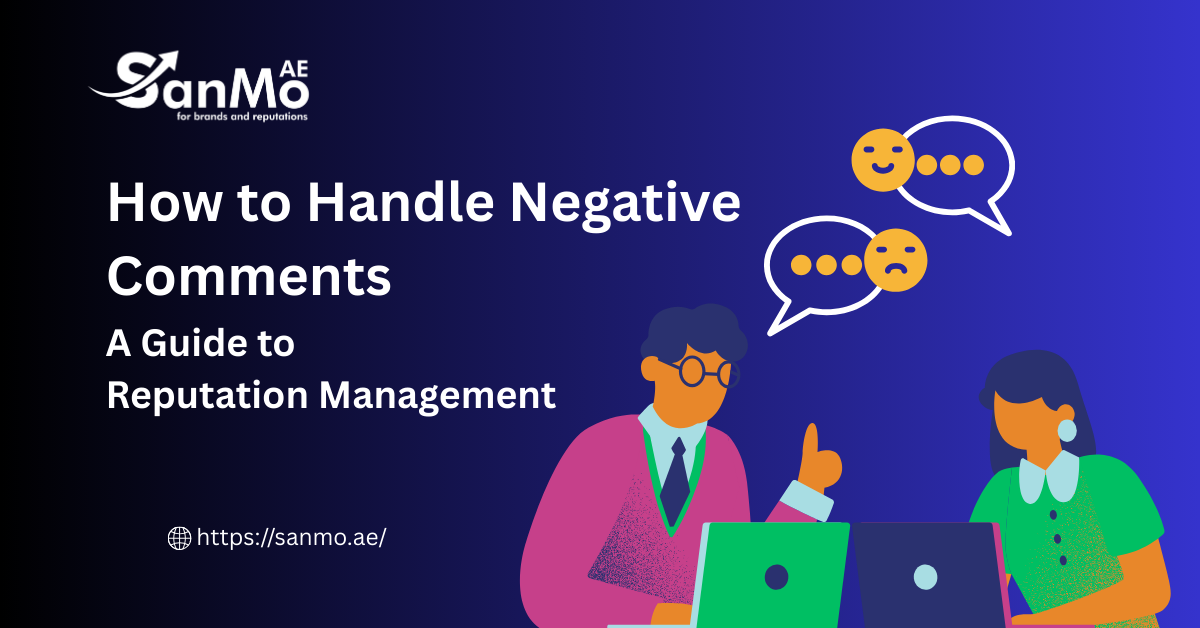Wikipedia stands as one of the world’s most visited websites, with billions of page views each month. For organizations, public figures, and brands, having accurate representation on this platform can significantly impact their online reputation and credibility. However, managing a Wikipedia presence requires understanding the platform’s unique culture, strict guidelines, and complex editorial processes.
Wikipedia page management involves creating, maintaining, and monitoring Wikipedia articles while adhering to the platform’s stringent policies. Unlike traditional marketing or PR efforts, Wikipedia operates under principles of neutrality, verifiability, and reliability that demand a fundamentally different approach to content creation and maintenance.
This comprehensive guide will walk you through everything you need to know about effectively managing Wikipedia pages, from understanding the platform’s core principles to implementing long-term maintenance strategies that protect your organization’s reputation while respecting Wikipedia’s community-driven ethos.
Understanding Wikipedia’s Core Principles
Wikipedia operates on five fundamental principles known as the “Five Pillars” that govern all content decisions and editorial practices. These principles form the foundation of any successful Wikipedia page management strategy.
Neutral Point of View (NPOV)
Wikipedia requires all content to maintain a neutral point of view, presenting information fairly without advocating for particular positions. This means avoiding promotional language, superlatives, and biased perspectives that favor one side over another.
For organizations managing their Wikipedia presence, this principle can be challenging. Marketing copy that works on company websites or press releases will not meet Wikipedia’s neutrality standards. Instead, content must rely on independent, reliable sources that discuss the subject objectively.
Verifiability and Reliable Sources
Every claim on Wikipedia must be verifiable through reliable, published sources. Wikipedia editors cannot accept original research, personal knowledge, or unpublished information, regardless of its accuracy. This requirement drives the need for comprehensive source documentation in any Wikipedia page management strategy.
Reliable sources typically include established news organizations, academic publications, government documents, and recognized industry publications. Social media posts, press releases, and company websites generally don’t qualify as independent sources for Wikipedia content.
The Free Encyclopedia
Wikipedia aims to be a comprehensive encyclopedia covering all notable subjects. This principle affects page management by establishing notability requirements—subjects must meet specific criteria demonstrating their significance to warrant Wikipedia coverage.
Creating Your Wikipedia Page Management Strategy

Developing an effective Wikipedia page management approach requires careful planning, realistic expectations, and a deep understanding of the platform’s community dynamics.
Assessing Notability Requirements
Before attempting to create or significantly modify a Wikipedia page, you must honestly evaluate whether your organization or subject meets Wikipedia’s notability guidelines. These guidelines vary by subject type but generally require significant coverage in multiple independent, reliable sources.
Organizations should look for coverage in major news outlets, industry publications, academic sources, or government documents. Passing mentions in articles primarily about other topics rarely satisfy notability requirements.
Building a Source Portfolio
Successful Wikipedia page management begins with a comprehensive source collection. Gather all reliable sources that mention your organization, including news articles, industry reports, academic papers, and government documents.
Organize these sources chronologically and thematically, noting what information each source provides and how recent the coverage is. This portfolio becomes the foundation for any Wikipedia content creation or editing efforts.
Understanding Wikipedia’s Editorial Culture
Wikipedia’s community consists of volunteer editors who take the platform’s principles seriously. Successful page management requires respecting this community and understanding their perspectives on promotional editing and conflicts of interest.
Many Wikipedia editors are skeptical of accounts associated with organizations or subjects they’re editing. Transparency about your affiliations and a genuine commitment to Wikipedia’s principles can help build trust with the editorial community.
Content Creation and Editing Best Practices

Creating or editing Wikipedia content requires specific skills and approaches that differ significantly from other forms of writing and content marketing.
Writing in Wikipedia Style
Wikipedia content follows specific style conventions that prioritize clarity, neutrality, and encyclopedic tone. Sentences should be direct and factual, avoiding marketing language or emotional appeals.
Start articles with clear, concise definitions that immediately identify the subject and its significance. Use the past tense for most factual statements and the present tense only for ongoing situations that are well-documented in current sources.
Structuring Information Effectively
Well-organized Wikipedia articles follow logical structures that help readers quickly find relevant information. Begin with an introductory section that summarizes the most important points covered in the article.
Use clear headings to organize information chronologically or thematically. Common sections include history, operations, products or services, recognition or awards, and controversies when relevant and well-documented.
Citation and Source Management
Proper citation is crucial for Wikipedia page management success. Every significant claim requires inline citations using Wikipedia’s specific formatting system. Learn to use citation templates that ensure consistency and completeness.
When adding citations, include all available information such as publication dates, page numbers, and author names. This thoroughness demonstrates good faith and helps other editors verify information.
Ongoing Maintenance and Monitoring
Wikipedia pages require continuous attention to maintain accuracy, currency, and compliance with evolving guidelines.
Regular Content Updates
Monitor your sources regularly for new coverage that might warrant updates to Wikipedia content. However, avoid making frequent minor edits that might appear promotional or disruptive to other editors.
When updating content, focus on significant developments that are well-covered in reliable sources. Routine business updates, minor awards, or incremental achievements may not warrant Wikipedia coverage.
Responding to Editorial Changes
Other editors will inevitably modify content on pages you manage. Develop a systematic approach for monitoring these changes and deciding when intervention is appropriate.
Some changes may improve accuracy or neutrality, while others might introduce errors or bias. Focus on content accuracy and policy compliance rather than defending particular phrasings or emphases.
Managing Controversies and Negative Content
Wikipedia includes negative information when it’s well-sourced and significant to understanding the subject. Rather than attempting to remove such content, focus on ensuring it’s presented fairly and in an appropriate context.
When controversial content appears, verify its accuracy and sourcing. If the information is incorrect or poorly sourced, work with other editors to improve it. If it’s accurate but seems disproportionate, consider whether additional positive content might provide better balance.
Building Long-Term Success
Effective Wikipedia page management requires patience, consistency, and genuine respect for the platform’s mission and community.
Establishing Editor Relationships
Building positive relationships with Wikipedia editors who frequently work in your subject area can provide valuable insights and support. Engage constructively in discussions, acknowledge good edits by others, and demonstrate commitment to Wikipedia’s principles.
These relationships take time to develop, but can prove invaluable when disputes arise or when you need guidance on complex policy questions.
Staying Current with Policy Changes
Wikipedia’s policies and guidelines evolve continuously. Stay informed about changes that might affect your page management strategies, particularly in areas like sourcing requirements, notability guidelines, and conflict of interest policies.
Participate in relevant Wikipedia community discussions when appropriate, always disclosing any affiliations and focusing on policy improvement rather than advocacy for particular positions.
Measuring Success and Impact
Wikipedia page management success differs from traditional marketing metrics, focusing on accuracy, stability, and community acceptance rather than traffic or conversions.
Key Performance Indicators
Monitor page view statistics to understand reader interest, but remember that Wikipedia traffic patterns differ significantly from commercial websites. Consistent, steady traffic often indicates successful page management more than dramatic spikes.
Track edit frequency and the types of changes other editors make. Pages with fewer disruptive edits and more collaborative improvements suggest successful community integration.
Long-Term Reputation Management
Wikipedia’s high search engine rankings mean that Wikipedia content significantly influences public perception. Focus on ensuring that Wikipedia coverage accurately represents your organization while acknowledging that you cannot control every aspect of that representation.
Build comprehensive source portfolios that support positive, accurate coverage over time. This approach provides the foundation for sustainable Wikipedia page management that serves both your organization’s interests and Wikipedia’s mission.
Wikipedia page management requires patience, expertise, and genuine commitment to the platform’s principles. Success comes from understanding that Wikipedia serves readers first, not subjects, and that effective management means contributing to this mission while ensuring accurate, fair representation of your organization.
Maximizing Your Wikipedia Strategy
Wikipedia page management represents a unique opportunity to influence your organization’s digital reputation through the world’s largest encyclopedia. Success requires balancing your organization’s interests with Wikipedia’s community-driven mission of providing neutral, verifiable information to readers worldwide.
The key to effective Wikipedia page management lies in understanding that Wikipedia is not a marketing platform but an educational resource. Organizations that approach it with respect for its principles, patience with its processes, and commitment to accuracy will find it a valuable component of their broader digital strategy.
Start by honestly assessing your organization’s notability, building a comprehensive source portfolio, and engaging constructively with Wikipedia’s community. Focus on long-term relationship building rather than quick wins, and remember that the best Wikipedia page management is often invisible—maintaining accurate, stable content that serves readers while reflecting well on your organization.
Ready to Enhance Your Online Reputation with Expert Wikipedia Page Management?
Managing your Wikipedia presence requires deep knowledge, strategic planning, and ongoing dedication — qualities that SanMo AE specializes in. Whether you’re looking to create a new page, maintain existing content, or navigate Wikipedia’s complex guidelines, our experienced team is here to help you achieve credible, neutral, and lasting results.
Why Choose SanMo AE?
- Expert understanding of Wikipedia’s strict editorial standards
- Proven track record in building and managing authoritative pages
- Transparent, ethical approach aligned with Wikipedia’s community values
- Continuous monitoring and maintenance to protect your digital reputation
Don’t leave your Wikipedia presence to chance. Partner with SanMo AE and ensure your organization is represented accurately and professionally on the world’s largest online encyclopedia.
Get started today!
Contact us at SanMo AE to schedule your consultation and take control of your Wikipedia page management.
Frequently Asked Questions (FAQs)
1. What is Wikipedia page management?
Wikipedia page management involves creating, maintaining, and monitoring Wikipedia articles while adhering to Wikipedia’s guidelines, including neutrality, verifiability, and reliable sourcing. It ensures accurate representation of organizations, public figures, or brands on the platform.
2. Why is Wikipedia page management important?
Wikipedia is one of the most visited websites worldwide, and pages often rank high in search results. Effective management protects your online reputation, ensures accurate information, and builds credibility with readers.
3. Can anyone create a Wikipedia page for a company or individual?
Technically, anyone can create a page, but Wikipedia requires subjects to meet notability guidelines and be supported by reliable, independent sources. Pages that don’t meet these criteria risk deletion.
4. How do I maintain a Wikipedia page over time?
Regular monitoring of edits, updating content with well-sourced developments, responding to editorial changes, and ensuring neutrality are key. Engaging constructively with the Wikipedia community is essential for long-term stability.
5. What are common mistakes in Wikipedia page management?
- Using promotional or biased language
- Ignoring Wikipedia’s sourcing requirements
- Over-editing or making frequent minor updates
- Failing to disclose conflicts of interest
6. How do I handle negative content on Wikipedia?
Do not attempt to remove accurate, well-sourced negative information. Instead, focus on providing context and balance with other reliable sources. Collaborate with editors to ensure fair representation.
7. How long does it take to see results from Wikipedia page management?
Results vary depending on the subject’s notability and coverage. Establishing stable, well-sourced content and community trust can take several weeks to months.
8. Can Wikipedia page management improve SEO?
Yes. Wikipedia pages often rank highly in search engines, so accurate and well-maintained pages can boost online visibility and support overall reputation management strategies.
9. Do I need professional help for Wikipedia page management?
While small edits can be done individually, professional Wikipedia management services, like SanMo AE, provide expertise in notability assessment, source building, editing best practices, and long-term monitoring to ensure compliance and stability.
10. Is Wikipedia page management suitable for all organizations?
It’s most beneficial for organizations, public figures, and brands with significant coverage in independent sources. Those seeking to influence their online reputation, improve visibility, or manage public perception find it particularly valuable.







